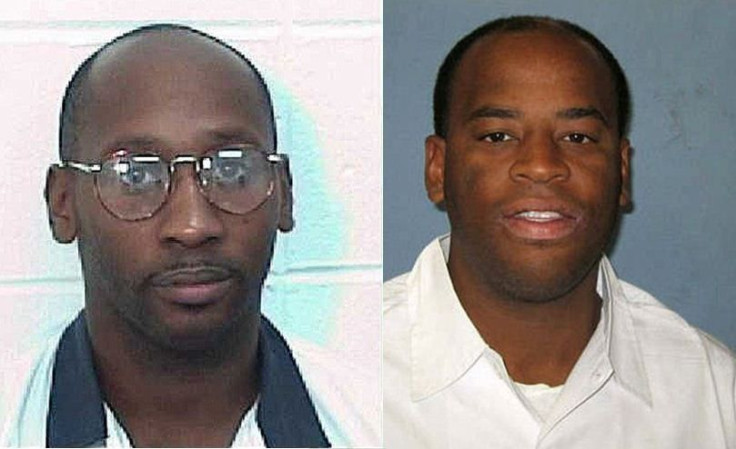A Tale of Two Executions: Troy Davis and Derrick Mason

Troy Davis, executed by Georgia Wednesday night despite worldwide protest, was not the only death row inmate put to death in the U.S. this week.
Davis was killed by lethal injection at 11:08 p.m. for the murder of Savannah policeman Mark MacPhail in 1989. To the end, he vowed his innocence.
No murder weapon was found and there was no DNA evidence. Ten witnesses in the case later signed affidavits withdrawing their statements, saying police coerced them into accusing Davis.
If I knew then what I know now, Brenda Davis, one of the jurors, told CNN in a 2009 interview, Troy Davis would not be on death row. The verdict would be not guilty.
Inside the death chamber at the end, Davis was heard telling the MacPhail family he did not kill their son.
The incident that night was not my fault, I did not have a gun, Davis said to all who gathered for the execution. He also urged people to continue to fight and look deeper into this case so you can finally see the truth.
But the execution that followed Davis' on Thursday has also left some questions unanswered.
On Thursday, Alabama executed a man named Derrick O'Neal Mason, who was convicted of killing 25-year-old Angela Cagle, a convenience store clerk in Huntsville, during a 1994 robbery.
Mason, 37, was given a lethal injection and was pronounced dead at 6:49 p.m. Central Time at Alabama's Holman Prison.
Prosecutors said Mason shot Cagle twice in face at close range. The victim's body was found in the back room of the convenience store.
An unidentified informant later told police that it was Mason who committed the crime and was trying to make a name for himself. According to court records, Mason later confessed.
But over the years Mason argued that his constitutional rights were violated as he was initially arrested on an unrelated misdemeanor assault warrant and therefore the gun found in his car should not have been admitted into evidence in the murder case, the Associated Press reported.
Mason also said his confession was involuntary because he was subjected to improper questioning. He was intoxicated and misled by law enforcement officers, he said.
© Copyright IBTimes 2024. All rights reserved.






















